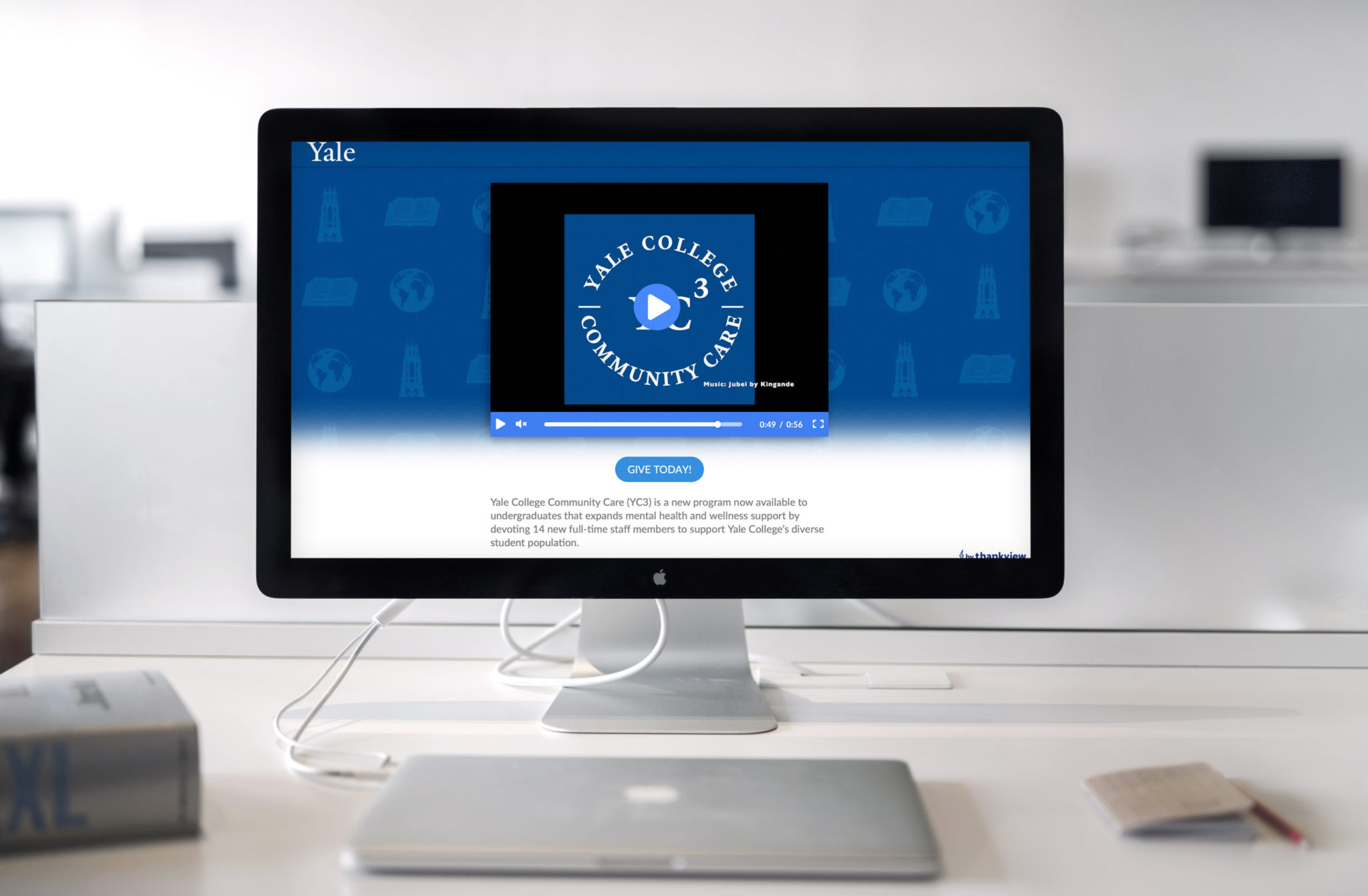Yale appeals to alumni for YC3 funding
The Yale Alumni Fund called for donations to support Yale College Community Care in an email to alumni, calling attention to the University’s publicity of mental health initiatives.

Vaibhav Sharma, Photo Editor
An alumni fundraising email highlighting Yale College Community Care has generated conversation among campus mental health advocates about the program’s publicity — and the sources of its funding.
The email, sent by the Yale Alumni Fund to alumni on Nov. 16, called for donations to “support YC3 and other student programs at Yale,” and included a video explaining the resources offered by the program. Some mental health advocates took issue with the request for alumni funding of mental health initiatives, which they believe should be funded from the University’s endowment. In response, Dean of Yale College Marvin Chun told the News that it is difficult to allocate endowment funding towards the program because it is independent of Yale Mental Health and Counseling.
“We’re highlighting Yale College Community Care because that’s what we’re hearing from students as being one of their highest priorities,” Chun said. “Although the pilot is only a few months old, we’re getting enough positive indication that the program is filling a need that the students have been emphasizing, so we’re really stepping up our efforts to try to fund the program.”
Chun said that the University routinely highlights specific programs like YC3 for alumni funding.
The University launched YC3 in April as a supplementary program to Yale Mental Health and Counseling, offering students more immediate meetings to provide support for pressing issues. The program is focused on short-term care, offering between one and four meetings with either licensed college care clinicians or community wellness specialists.
“Students can see both sides of the program at the same time,” community wellness specialist Corinne Coia wrote in an early November email to the News. “This program also serves as a complement to Mental Health and Counseling as students can use our program while waiting to be assigned a therapist at Mental Health and Counseling, or in addition to an ongoing therapist.”
Willow Sylvester ’22, a member of the campus mental health advocacy group Mental Health Justice at Yale, saw the email as advertising the University’s emphasis on the expansion of mental health care to alumni.
“There’s always the risk of alumni being upset about the lack of mental health resources and pulling donations,” Sylvester said. “I can definitely see how this email would be signaling to them, ‘We are focusing on this. Donate and it will go to this.’”
However, Sylvester expressed concerns that the University was more focused on promoting the program to alumni than on expanding awareness of the program on campus.
Although Sylvester said that first-year counselors were encouraged to help advertise the program to the students they advise, Sylvester estimated that 90 percent of her friends who are not first years “don’t know about YC3” resources.
Sylvester also took issue with the University’s use of alumni donations to fund the program, suggesting that funding for mental health services should instead come out of the University’s endowment.
“Yale should be investing more of its own money into mental health resources on campus,” Sylvester said. “I certainly don’t think that Yale needs money from alumni to fund YC3.”
Instead, Sylvester said, the platform of the Yale Alumni Network could help students more effectively by directing alumni to the GoFundMe organized by the alumni mental health advocacy group Elis for Rachael. Sylvester is also a student liaison for Elis for Rachael.
The Elis for Rachael GoFundMe provides direct financial assistance to students who have taken medical leaves from Yale for mental health reasons.
“That was something that Elis for Rachael talked about with [regard to] the appeal for donations to alumni,” Sylvester said. “Why aren’t they advertising our GoFundMe to directly support students?”
Paul Mange Johansen ’88, a member of Elis for Rachael, pointed to the $11.1 billion endowment growth that the University saw in fiscal year 2021, emphasizing the importance of allocating the unrestricted portion of the endowment towards expanding mental health services on campus.
Chun said that the YC3 program was currently largely dependent on outside funding, both because it is still new and because it operates independently from Yale Mental Health and Counseling.
“It’s in collaboration with Yale Mental Health and Counseling, but it’s independent, so it’s not easy to put endowment funds to it,” Chun said. “It’s very gift-dependent.”
YC3 was launched with funding for three years, Chun explained, and donations from alumni would help make it permanent. Establishing YC3’s longevity is a priority, Chun said, emphasizing that student feedback on the program has been largely positive.
Indeed, Sylvester emphasized the benefit of the program’s short wait times. Also a first-year counselor, Sylvester explained that she often directs students toward YC3 services as immediate care in the interim period before they are assigned a YMHC therapist.
Although Johansen acknowledged that the addition of YC3 was a step in the right direction, he expressed concern that the University was “putting a Band-Aid on a bullet wound,” and that their focus on student “wellness” needed supplementing.
“My concern is that the Yale administration is confusing wellness with psychiatric treatment,” Johansen said. “Wellness is good, and I would never say any wellness efforts are wasted. I think it’s a good thing to do, but it’s not a substitute for one-on-one therapy.”
Johansen said that Yale’s priorities should be expanding options for clinical care, either within or outside of the University’s mental health services.
Students can book appointments with YC3 clinicians or with wellness specialists online.







